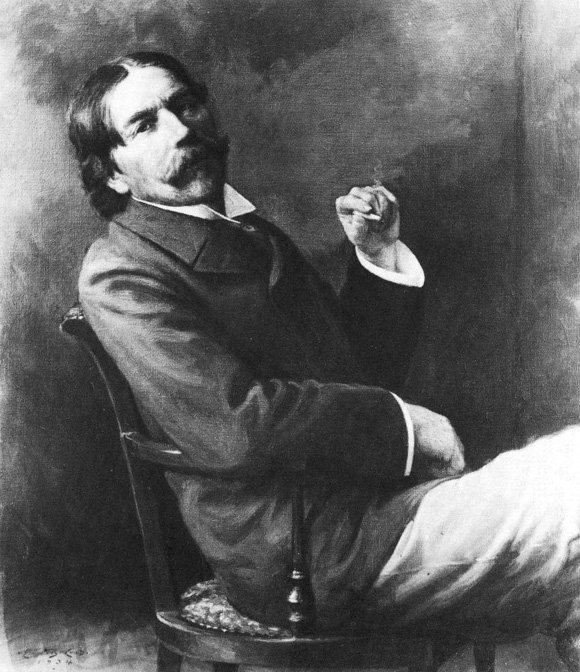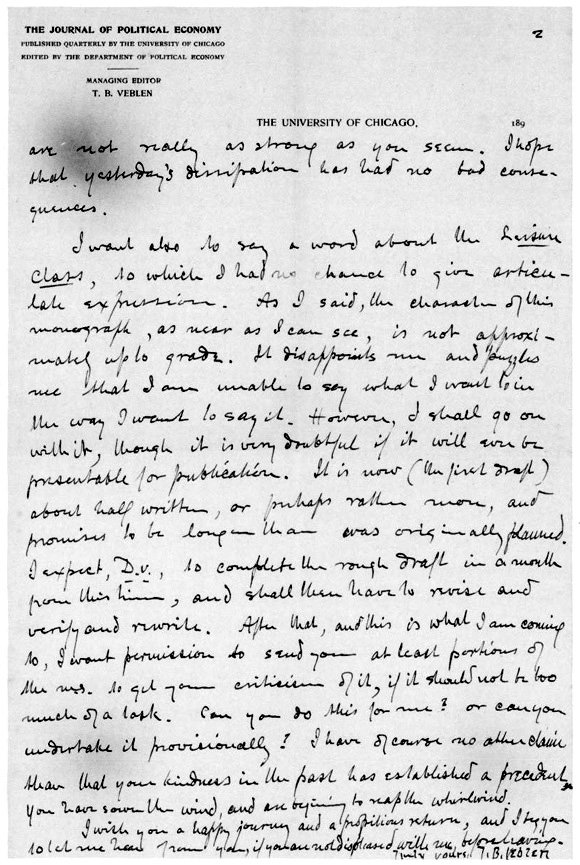Thorstein Veblen (1857-1929): Economics
Veblen was one of the first academics to examine seriously the relationship between consumption and wealth in society. Although he trained and worked as an economist, he incorporated sociological and anthropological research into his own work. His classic work, The Theory of the Leisure Class (1899), written at Chicago, dissected the behavior of the wealthy in an increasingly materialistic world, coining the phrases conspicuous consumption, pecuniary emulation, and conspicuous waste. The book's effectiveness was enhanced by Veblen's seemingly dispassionate and impersonal style. In fact it was a savage and frequently ironic if extremely erudite assault on current values. John Kenneth Galbraith has called it one of only two books by nineteenth-century economists that is still read.
The leisure class was not the only group Veblen singled out for critical description. His years at Chicago and later at Stanford provided him with the material for a critique of modern higher education. The Higher Learning in America (1919) was Veblen's interpretation of all that had gone wrong with the colleges and universities. Veblen argued that the application of business standards to measure the success or failure of academic inquiry was smothering higher education and turning universities into little more than advanced technical schools.
Sales of Veblen's books were modest at best, and academic reactions were not always favorable. Even his most famous work, The Theory of the Leisure Class, was not reviewed by the Economic Journal until twenty-six years after it first appeared. One analyst said he wrote "with one eye fixed on the squirming reader." Although his personal correspondence gives no hint of his sardonic cynicism, his published writings reflect a man uncomfortable with the existing social order. At least a few of his contemporaries recognized his brilliance and, despite their ideological differences, supported him when he ran afoul of societal and academic conventions.
Perhaps deliberately, Veblen developed teaching techniques that frustrated students and administrators. Students in his courses were required not only to read French and German fluently, but to be conversant in a wide range of disciplines in order to register. After hearing him lecture in a barely audible monotone, most students quickly dropped his courses. Those who remained were generally all given C's, not a happy prospect for potential Phi Beta Kappas. When a scholarship committee asked Veblen why his was the only low grade on one applicant's transcript, Veblen replied that his grades were "like lightning, liable to strike anywhere."
The Theory of the Leisure Class was as difficult for its author to write as it was for some of his readers to accept. Three years before the book saw print. Veblen confessed to Sarah Hardy that he was unsure it would ever be published.


